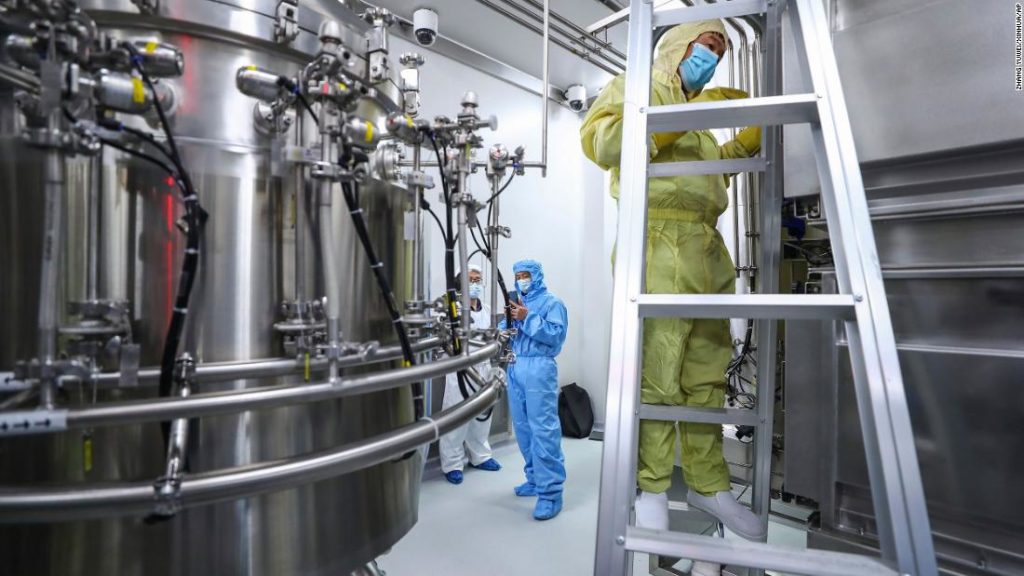The Health Ministry said the results for the vaccine were based on interim analysis of the late-stage clinical trials which the UAE started in July, according to the statement which was carried by the state news agency.
“The analysis shows no serious safety concerns,” the statement said, though it did not make clear whether individual participants suffered any specific side effects, or how many volunteers were given the vaccine or a placebo.
The statement added that the “official registration” of the Covid-19 vaccine is “a major step towards combating the global pandemic.” The statement did not elaborate on what official registration would entail.
The clinical trials included 31,000 volunteers across 125 nationalities in the UAE, the statement said. So far, almost 100,000 people across the Emirates have also received the vaccine as part of a voluntary program, Jamal Al Kaabi, a top UAE health official told CNN.
CNN has reached out to Sinopharm for more details.
In exchange, many of the host countries have been promised early access to the successful vaccines — and in some cases, the technology know-how to manufacture them locally.
In November, Sinopharm chairman Liu Jingzhen said that dozens of countries had requested to buy the company’s vaccines. He did not name the countries or elaborate on the amount of doses they proposed, but he said CNBG was capable of producing more than one billion doses in 2021.
“China not only has the political will (for its vaccine diplomacy), it also has the robust capacity to make that happen,” Huang said.
Compared with Pfizer and Moderna, most Chinese vaccines do not require freezing temperatures for storage, making transport and distribution much easier, especially in developing countries that lack cold storage capacities.
Both Pfizer and Moderna’s vaccines use pieces of genetic material called messenger RNA (mRNA) to prompt the body to make synthetic pieces of the coronavirus and stimulate an immune response — a new technology that has not been used in existing vaccines.
But mRNA is vulnerable to degradation at room temperature. Moderna’s vaccine has to be stored at -20 degree Celsius (-4 degrees Fahrenheit), or at refrigerator temperatures for up to 30 days, while the Pfizer vaccine has to be stored at an ultra-cold temperature of -75˚C (-103˚F), and used within five days once refrigerated at higher temperatures.
Sinopharm, meanwhile, uses a longstanding approach that has proven effective in other vaccines, such as polio and flu shots. Their coronavirus vaccines employ an inactivated whole virus to prompt the body to develop immunity, and only need to be stored at standard refrigerator temperatures of 2˚C to 8˚C (36˚F to 46˚F). Other Chinese vaccines in production can be kept at similar temperatures.
Reporting contributed by CNN’s Beijing bureau and Nectar Gan in Hong Kong.
You may also like
-
UK coronavirus variant has been reported in 86 countries, WHO says
-
NASA technology can help save whale sharks says Australian marine biologist and ECOCEAN founder, Brad Norman
-
California Twentynine Palms: Explosives are missing from the nation’s largest Marine Corps base and an investigation is underway
-
Trump unhappy with his impeachment attorney’s performance, sources say
-
Lunar New Year 2021: Ushering in the Year of the Ox

